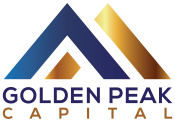
Finding a trusted mortgage lender is a crucial step in saving money during the home-buying process. Goldenpeak Capital is here to help.
A mortgage rate is the interest rate charged by a lender on a mortgage loan. It represents the cost of borrowing money to purchase a home or other property. The rate is expressed as a percentage and is a key factor in determining the monthly payment amount a borrower owes to the lender.
A conventional loan is a type of mortgage loan that is not insured or guaranteed by a government agency, such as the Federal Housing Administration (FHA), the Department of Veterans Affairs (VA), or the U.S. Department of Agriculture (USDA). Instead, it is backed by private lenders, and its terms and conditions are typically governed by the lender’s requirements and federal regulations.
An FHA loan is a mortgage loan that is insured by the Federal Housing Administration (FHA), a government agency within the U.S. Department of Housing and Urban Development (HUD). FHA loans are designed to make homeownership more accessible, especially for first-time homebuyers or individuals who may not qualify for conventional loans.
A VA mortgage is a type of home loan available to eligible veterans, active-duty service members, and certain members of the National Guard and Reserves. It’s backed by the U.S. Department of Veterans Affairs (VA), which means the VA guarantees a portion of the loan, reducing the risk for lenders and enabling borrowers to secure favorable terms.
A jumbo mortgage is a type of home loan that exceeds the borrowing limits set by the Federal Housing Finance Agency (FHFA) for conforming loans. Because jumbo loans fall outside these limits, they are not eligible for purchase by government-sponsored enterprises (GSEs) like Fannie Mae and Freddie Mac. As a result, jumbo mortgages often come with stricter requirements and unique characteristics.
A Non-QM loan (Non-Qualified Mortgage loan) is a type of mortgage that does not meet the criteria set by the Consumer Financial Protection Bureau (CFPB) for a Qualified Mortgage (QM). Qualified Mortgages are designed to ensure that borrowers have the ability to repay their loans and include certain features and protections for both lenders and borrowers.
A 203(k) mortgage is a loan program offered by the Federal Housing Administration (FHA) that enables homebuyers or homeowners to finance the purchase or refinancing of a home and the costs of its rehabilitation or renovation into a single loan. It is particularly designed for properties that need repairs or improvements.
A USDA mortgage is a home loan program offered by the United States Department of Agriculture (USDA). It is designed to help low-to-moderate income individuals and families purchase homes in rural and suburban areas. These loans are part of the USDA’s efforts to promote homeownership in less densely populated regions.
A reverse mortgage is a type of loan that allows homeowners, typically aged 62 or older, to borrow money using their home equity as collateral. Unlike a traditional mortgage, where the borrower makes monthly payments to the lender, with a reverse mortgage, the lender pays the homeowner.
A variable rate is generally not considered “better” than a fixed rate unless you are confident that interest rates will fall during your loan term, as variable rates can offer lower initial payments but carry the risk of significantly increasing if market rates rise, making a fixed rate a more stable choice for most borrowers who value predictability in their payments.
After receiving approval from your lender and confirming that you’re content with the interest rate offered, you can proceed to lock it in. Once locked, you can relax and await your scheduled closing date.
Rates are constantly changing weekly, daily and even hourly. The main factors for this flux are the state of the economy, inflation and the Federal Reserve Board. While these things are out of your hands, you can control your credit score, which has a definite impact on your interest rate.
New York, New Jersey, Ohio, and Florida